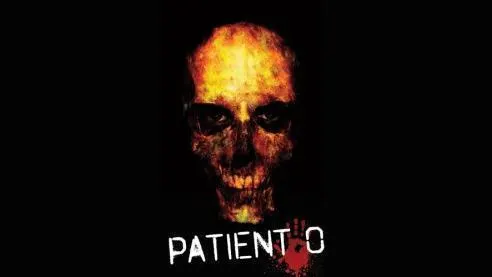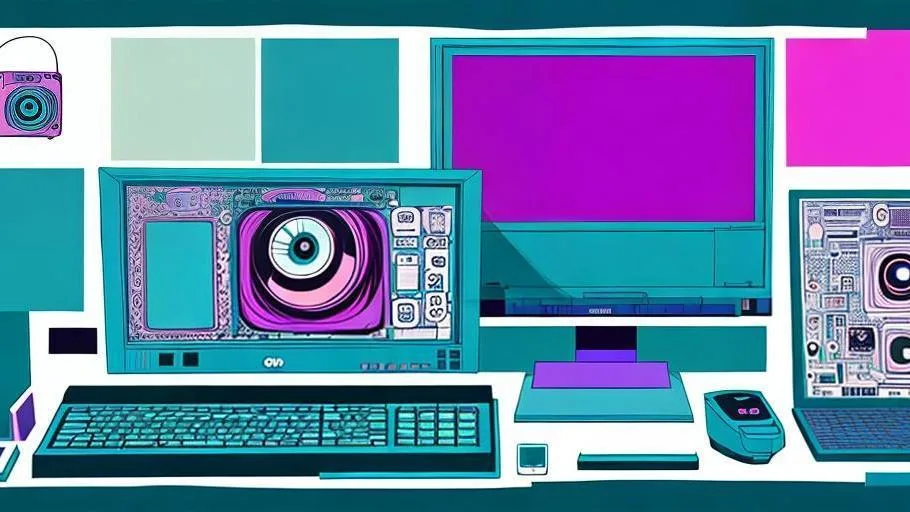Is AI content acceptable for search engines?
Greetings to all industrious small business owners, meticulous marketing managers, creative content managers, ambitious affiliate …

In 2012, amidst Melbourne's digital fervor, an innovative real-life role-playing game named "IRL Shooter: Patient Zero" emerged, marking a revolutionary step in immersive gaming experiences.
As the originator of the idea and co-founder, I embarked on a journey to create a first-of-its-kind event that would blur the lines between reality and gaming, challenging participants to survive a thrilling, post-apocalyptic zombie adventure.

Inspired by a zombie-themed airsoft event in the UK, I saw an opportunity to elevate the concept and create a truly immersive experience that would mirror the depth and complexity of a real-life video game. Collaborating with film industry professionals who brought expertise in set and costume design, we set out to develop a highly realistic and engaging game environment.
We crafted an original storyline from the ground up, complete with objectives, puzzles, and a narrative that would drive player actions.
By focusing on realism and leveraging the skills of our film industry partners, we aimed to create a game that would transport players into a convincingly post-apocalyptic world.

As a small team without significant financial backing, funding the project posed a significant challenge. To raise capital, we turned to crowdfunding, a relatively new concept in Australia.
Leveraging the growing enthusiasm for zombies and the novelty of our concept, our campaign quickly gained traction. Within days, we surpassed our initial $10,000 goal, eventually raising an unprecedented $250,000 - the largest crowdfunding campaign in Australia.
However, this success prompted us to expand the project's scope, a decision that would later prove problematic.
Navigating Australia's strict regulations on realistic weapon props added another layer of complexity.
By positioning the event as a film set and incorporating helmet cameras and CCTV footage, we were able to comply with regulations while enhancing the immersive nature of the experience.

Our marketing efforts focused on two key phases: promoting the crowdfunding campaign and building community engagement leading up to the event. We quickly generated buzz around the concept by leveraging a mix of paid social media advertising, earned media, and partnerships with online gaming sites.
A perfect storm of factors drove the crowdfunding campaign's success - the novelty of crowdfunding in Australia, the zombie craze, and the allure of a truly unique gaming experience.
As word spread, we benefited from organic media coverage, further fueling interest in the project. In the lead-up to the event, we focused on building a strong community and developing the game's lore. I worked with content writers and web developers to create a network of websites that would expand the game's narrative and provide players with an immersive backstory.
A dedicated community forum was a hub for players to connect, form teams, and explore the game's mythology.

We needed a robust ticketing system to manage ticket sales and facilitate the formation of six-player teams. I oversaw the development of a custom WordPress-based platform that could handle group sales, shared tickets, and grant players access to training materials.
However, the complexity of the system and our inexperience with large-scale web development led to significant challenges.
Mid-development, we faced technical hurdles that forced us to switch development teams and rebuild the backend using Ruby, all within a tight two-month timeframe.
Despite these setbacks, we successfully launched the ticketing platform and managed to sell over 8,000 tickets within just two months.
As co-founder, I also took on the responsibility of overseeing ticket sales and customer service. I assembled a small team to handle the high volume of inquiries, focusing on rapid response times to maintain customer satisfaction.
Our commitment to responding to any inquiry within 60 seconds, even if just to acknowledge receipt, played a crucial role in keeping complaint rates low and minimizing refund requests despite the technical issues and delays faced during the event.
On the ground, managing a team of up to 200 staff members across set design, costuming, acting, and technical roles presented significant logistical challenges. Effective communication and delegation were critical to ensuring smooth operations, even as we grappled with extended hours and shifting schedules due to the event's popularity.

One of the most ambitious aspects of IRL Shooter was the development of custom game technology. Initially, we explored licensing existing laser tag equipment but ultimately decided to build our system to better align with our vision.
This decision, while bold, presented numerous challenges. We worked with a film armourer to create realistic weapon props, sourced custom PCB boards to house the game's infrared technology and developed a bespoke trigger system and mesh network for scoring.
However, the complexity of the custom technology, coupled with our tight timeline and budget constraints, led to reliability issues during the event.
Our custom-cast rubber weapons were prone to wiring failures, requiring constant repairs and maintenance. In retrospect, investing in licensing-proven technology and retrofitting it to suit our needs would have been a more pragmatic approach. Balancing the desire for innovation with the realities of time and resource limitations is a valuable lesson I carried forward from this experience.

Transforming two warehouses into a cohesive, 12,000-square-meter game environment required meticulous planning and execution. We assembled a talented team of set designers, led by an experienced professional, to handle the construction of internal walls, rooms, stairs, and themed elements.
Costuming presented its challenges, as we had to integrate sensor technology into the actors' outfits to enable the game's scoring system.
The physicality of the actors' performances often led to damage, necessitating nightly repairs and maintenance. Throughout the event, we had to adapt to the realities of managing a large-scale, immersive experience. From coordinating the efforts of 200 staff members to troubleshooting technical issues on the fly, the ability to think on our feet and problem-solve under pressure proved invaluable.

As most of our crowdfunded budget had been allocated to the game's development and setup, we needed to generate additional revenue to cover operational costs.
We implemented several upselling strategies to maximize income without compromising the player experience. One key revenue stream was the sale of SD cards for helmet camera footage, which served the dual purpose of providing players with a unique memento and satisfying regulatory requirements.
We also offered premium costume upgrades, allowing players to purchase high-quality, themed military fatigues to enhance their immersion. Including two gift shops, one at the start of the event and another at the end, provided additional opportunities for upselling.
The pre-event shop offered themed patches and upgrades, while the post-event shop featured a mix of storyline-related merchandise and "I Survived" mementos.
While these upselling efforts generated significant revenue, the project's expanded scope meant they were insufficient to cover the increased operational costs fully.
This experience highlighted the importance of careful financial planning and aligning project scope with available resources.
IRL Shooter: Patient Zero stands as a testament to the power of innovative thinking and the challenges of bringing an ambitious vision to life. Through resourcefulness, adaptability, and a commitment to creating an unparalleled player experience, we delivered a groundbreaking event that pushed the boundaries of immersive gaming.
The lessons from this project, from the importance of financial planning and technology choices to the value of a dedicated and flexible team, have proven invaluable in my professional growth. IRL Shooter's success, despite the challenges faced, demonstrates my ability to lead cross-functional teams, navigate complex logistics, and deliver innovative solutions in the face of adversity.
As I progress in my career, I carry the skills, resilience, and creative problem-solving abilities honed through this incredible experience.
IRL Shooter: Patient Zero is a powerful example of my capacity to drive ambitious projects, adapt to changing circumstances, and create memorable experiences that resonate with audiences.
This case study was written with the assistance of AI.
Some other posts you may like

Is AI content acceptable for search engines?
Greetings to all industrious small business owners, meticulous marketing managers, creative content managers, ambitious affiliate …
April 29, 2024
Read More
What is natural language processing and how can I use it in my business?
In the era of artificial intelligence (AI), Natural Language Processing, commonly called NLP, is swiftly …
April 29, 2024
Read More